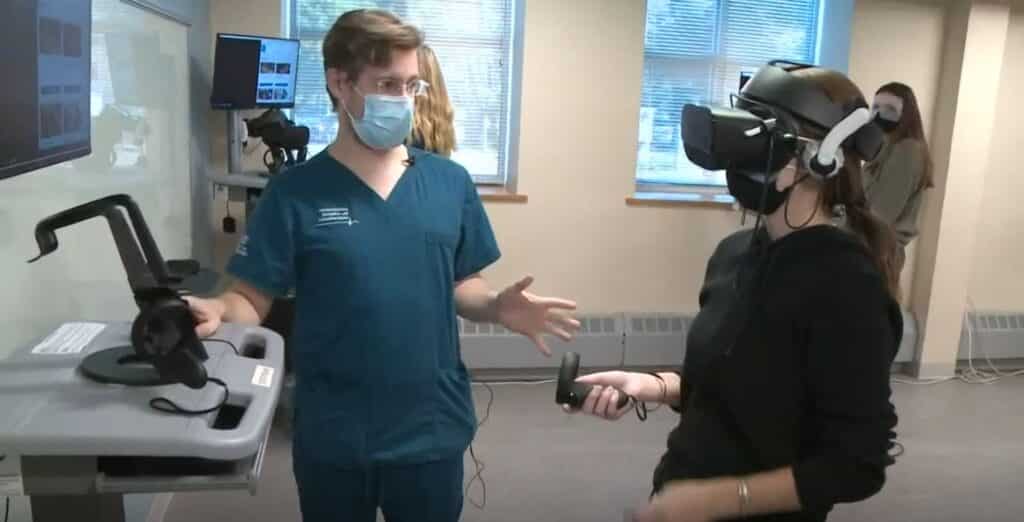Nursing students have had few opportunities to learn in hospital settings because of the COVID-19 pandemic. But, as this report from reports the Maine News Center demonstrates, virtual reality simulation from OMS is allowing students at the University of New England’s School of Nursing and Population Health to learn skills that prepare them for the real world.
During class on UNE’s Portland campus, nursing students use virtual reality scenarios from OMS to assess patients as they would in real life.
Having opportunities to build confidence and competence in this way is vital, as research shows that only 23% of nurses graduate feeling prepared for practice and 50% of entry-level nurses are involved in practice errors.
The inability to practice has only been made worse over the pandemic. As Dawn-Marie Dunbar, the director of the UNE Simulation Center notes:


Some scenarios takes place in a hospital maternity ward. Students must first determine the symptoms of a pregnant patient, who was just sent over from her doctor’s office. Students check reflexes, vital signs of both mom and baby.
As VR immerses completely immerses students in the virtual world, it convinces the brain into believing the experience is real. Kathleen Humphries, who is a senior in the program, said the scenarios make her feel like she is actually in the room with the patient and allows more practice in emergency cases:
After the students run through a scenario, they get immediate feedback on their mistakes without the stress of “practicing” skills on a real patient.
Developing this confidence is crucial to develop independent, capable nurses of the future. A 2020 report highlighted poor clinical decision-making as a factor in 65% of entry-level nurse errors and also found that just one-third of graduate nurses are confident in their practice.
The good news is that VR simulation scenarios such as those used by UNE can significantly improve knowledge retention and self-confidence in learners. Unlike with traditional training, scenarios can also can be repeated as often as needed to improve skills.
Following the ongoing success of the VR program in nursing, the team at UNE are now looking to expand VR to cover PAs and other healthcare professionals.
